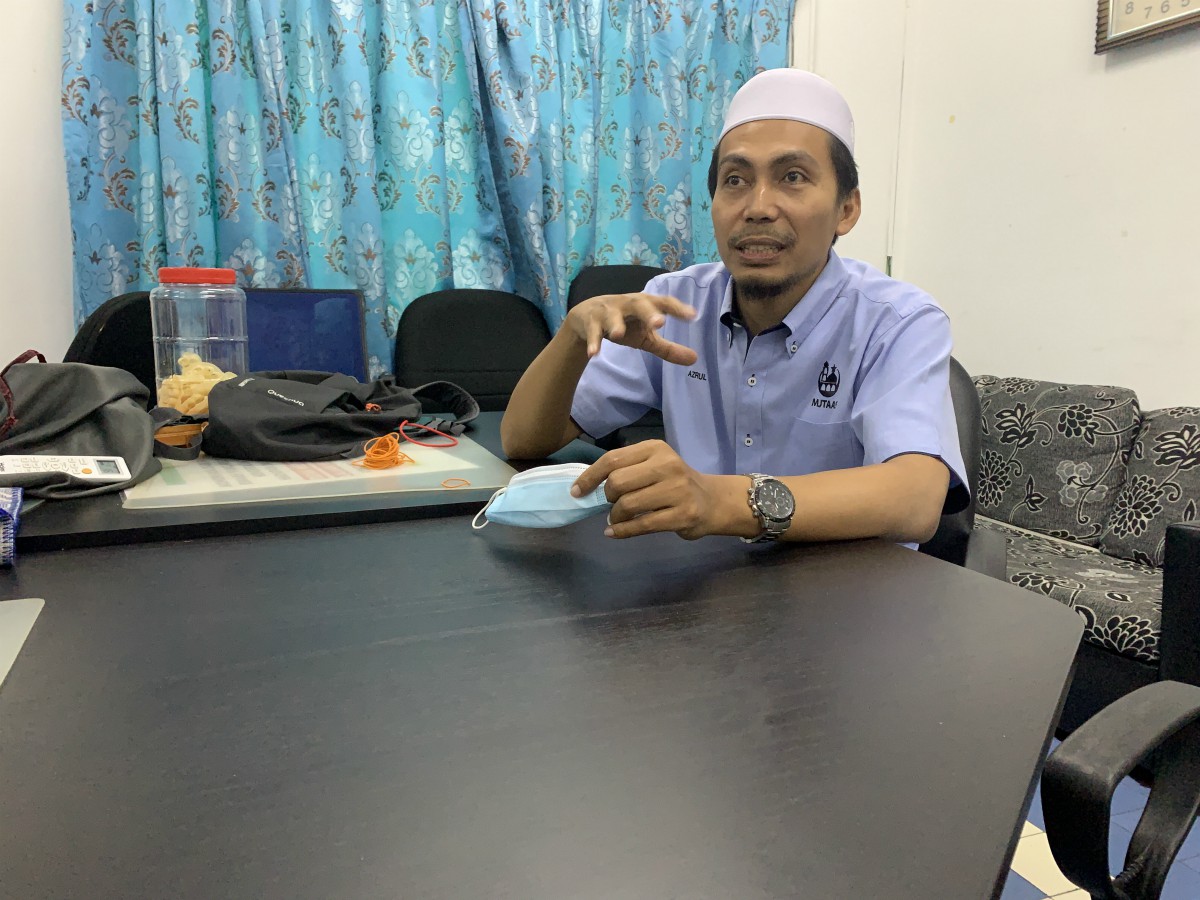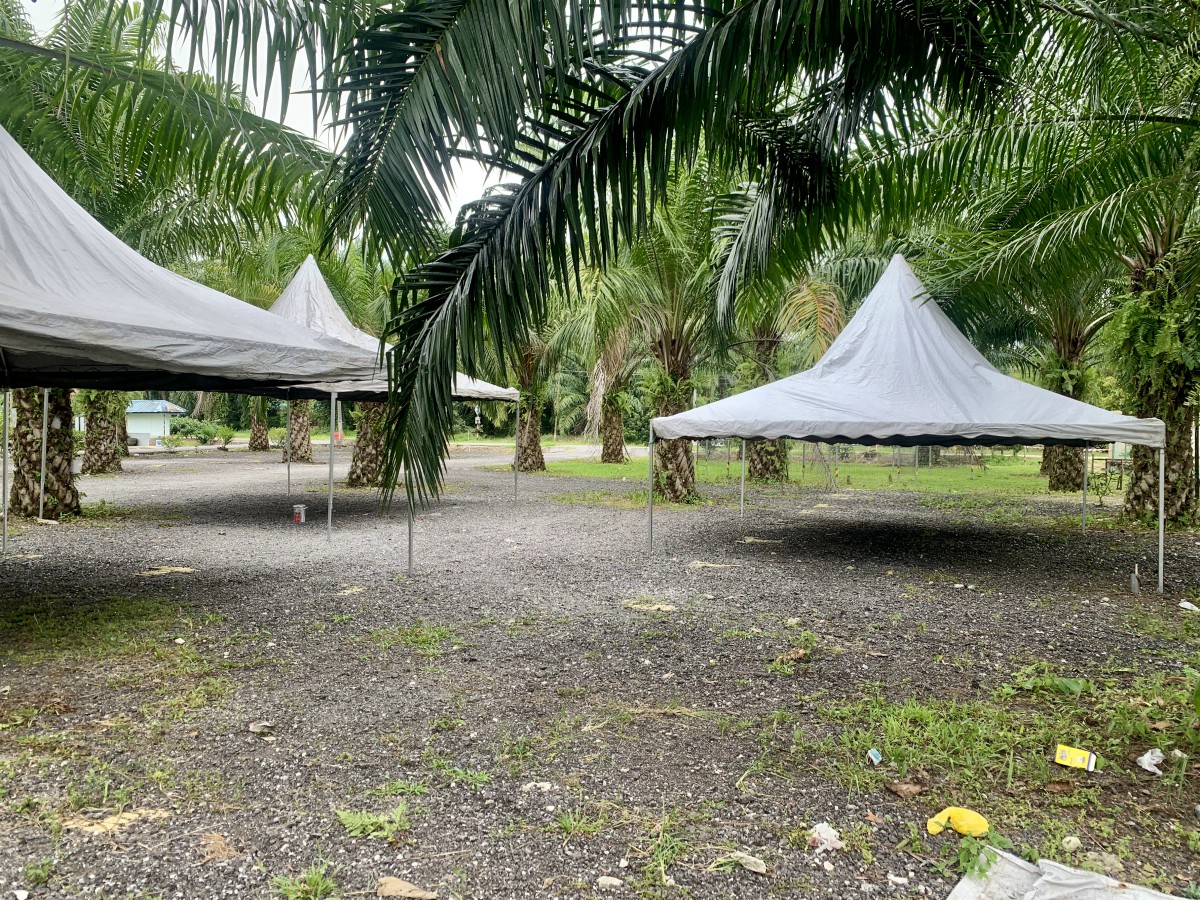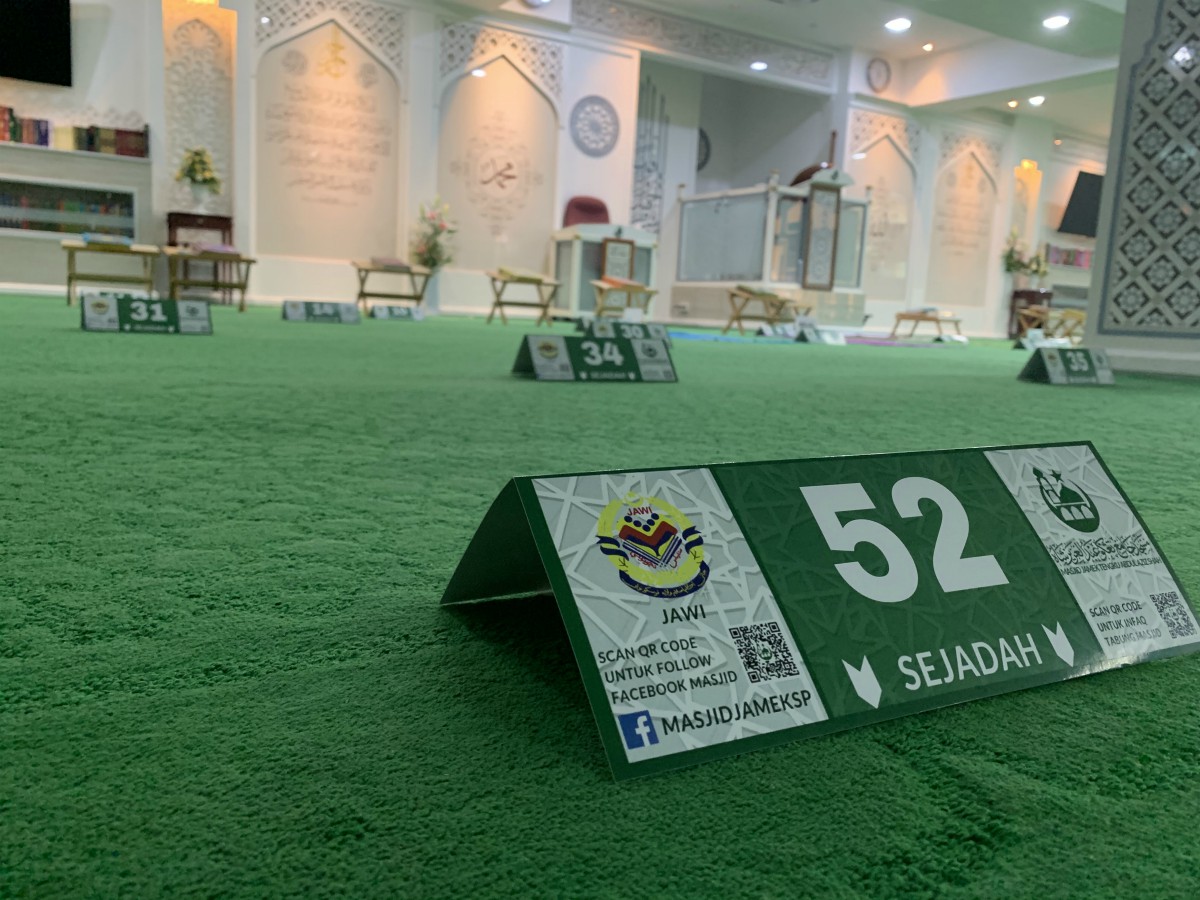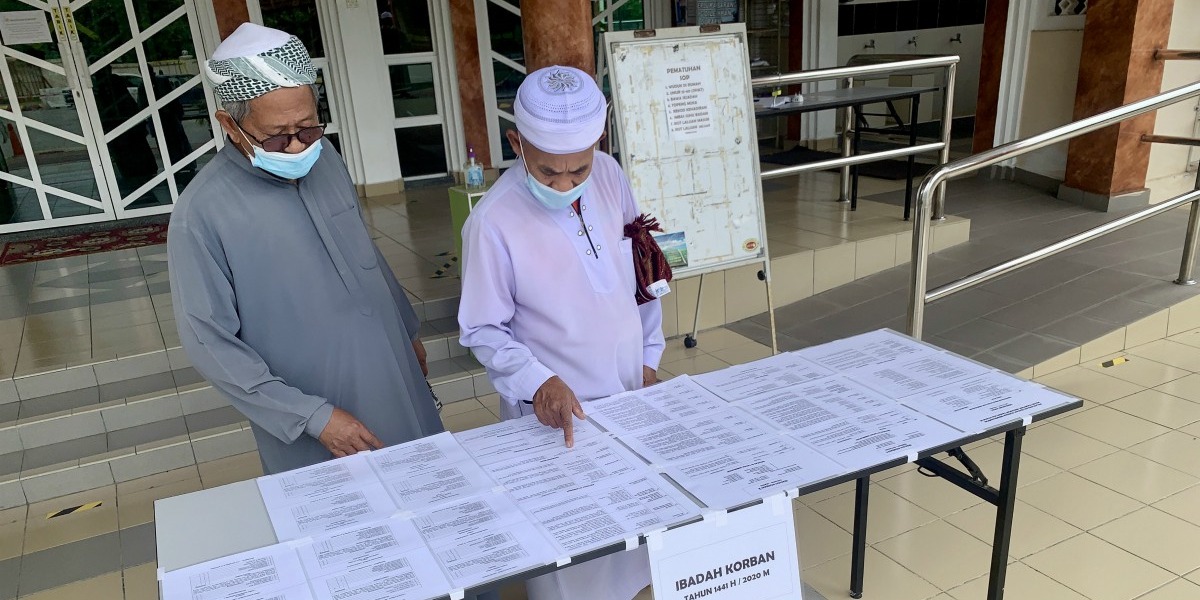
Malaysia’s village mosques adapt to Eid al Adha korban changes
Despite all the changes they have been forced to undergo over recent months, mosques in the Malaysian state of Selangor are ready to celebrate what will be a unique Eid a Adha this weekend.
Salaam Gateway recently visited two kampung—or village—mosques in Malaysia’s most populous state to see how they have adapted for this year’s feast of Korban, as it is known locally.
Having reopened on June 12, after nearly three months of closure to the public, imams at both mosques say they have learned to adjust to a new situation that calls for reduced congregations, limitations on the number of animals being slaughtered and new operating procedures.
 Photo: Azrul Azli bin Abdul Aziz Khatib, an imam at Masjid Jamek Tengku Abdul Aziz Shah at Kampung Penchala. Richard Whitehead/Salaam Gateway
Photo: Azrul Azli bin Abdul Aziz Khatib, an imam at Masjid Jamek Tengku Abdul Aziz Shah at Kampung Penchala. Richard Whitehead/Salaam Gateway
KAMPUNG PENCHALA
“In the beginning, it was difficult to implement the new SOPs, but after a while it has started to become easier. We have to comply with the government’s regulations and those of [state religious department] JAWI,” said Azrul Azli bin Abdul Aziz Khatib, an imam at Masjid Jamek Tengku Abdul Aziz Shah, which serves the urban village of Kampung Penchala just outside Kuala Lumpur.
The new rules limit congregations to a third of the typically 5,000 worshippers who attend Friday prayers. Entrances and exits are demarcated and temperatures and contact details are registered on arrival.
Though it lies in a heavily populated part of the Malaysian capital, the mosque stands in a traditional Malay township that is protected from urban development, providing a snapshot of village life amid the sprawl.
Largely since it is cut off from much of city life, the area is yet to record a case of COVID-19, according to the imam, and falls in the so-called Green Zone of districts that have been mostly unaffected by the pandemic.
It is for this reason that the mosque was given approval to perform Korban this year, unlike those in some neighbouring areas, although slaughtering ceremonies are forced to take place under strict social distancing rules and under the eye of health and religious authorities. JAWI has also limited the number of mosque officials and celebrants to 20 per animal during the on-premises slaughter.
This year will see an unusually large number of animals slaughtered for Korban for the mosque’s ummah, though only eight sacrifices will take place on the premises.
Due to government regulations limiting the number of slaughters at larger mosques to 10 animals due to government coronavirus control measures, the remaining 25 of the 33 cows ordered by Azrul Azli’s mosque will be sacrificed at one of Malaysia’s 31 private licensed slaughterhouses, with their carcasses transported to Kampung Penchala over the first two days of the festival.
This compares to some 25 animals slaughtered in the car park at the place of worship in regular years.
“We intended to give all the cows to the slaughterhouse but there were no more slots available for us. Other mosques in the area will not do Korban this year, which is why we decided to take more animals, to help perform Korban for their ummah,” said the imam.
In regular times, Malaysia would tend to suffer a shortage of sacrificial animals for Korban, but this year is anything but normal.
Australia, a major livestock supplier to Malaysia, has restricted exports of live cattle to the country during the Eid al Adha period since 2018 over fears of animal welfare, prompting cattle traders to look to grey-market imports from Thailand and mosque officials to find creative ways to source their own animals.
For Masjid Jamek Tengku Abdul Aziz Shah, Korban cows are supplied by a fishing friend of the mosque’s chairmperson who owns a breeding farm in rural Selangor.
Elsewhere, sufficient livestock numbers are available for slaughter this year across the state, according to Mohammad Subhi Bin Musuri, director of Provet Group of Companies, a veterinarian products stockist and cattle supplier in Sepang.
“There’s been a big difference from previous years because of the government’s SOPs limiting the number of mosques that can perform Korban. They have been very strict,” Mohammad Subhi told Salaam Gateway.
“There have been lower orders from mosques. Our regular customers cannot do Korban at all and are skipping this year. We are getting more orders from individuals, though, but our orders have been reduced by 60%.
“It is a little bit difficult for us but so far we can manage, alhamdulillah. We are supplying 98 cattle and 20 goats,” he added.
 Photo: Slaughter tents at Masjid Al Falah at Kampung Jenjarom. Richard Whitehead/Salaam Gateway
Photo: Slaughter tents at Masjid Al Falah at Kampung Jenjarom. Richard Whitehead/Salaam Gateway
KAMPUNG JENJAROM
Fifty kilometres southwest of Kampung Penchala, in the heart of Selangor’s agricultural belt, Masjid Al Falah in Kampung Jenjarom will celebrate Korban with substantially fewer sacrifices this year.
The mosque, which dates back to the 1950s and was renovated in 2014, is home to a congregation of Malay villagers and farm hands from Bangladesh and Indonesia. Normally, up to 24 animals would be slaughtered on site during each day of Eid al Adha, though this year that has fallen to 10 cows daily under the government’s new regulations.
Since many farms in the area raise cattle, in addition to growing fruit and vegetables, sourcing animals has never been a problem for the mosque.
What has been a more pressing issue, especially in a lightly-populated area with few visitors, has been a fall in donations to the mosque while it was closed.
Normally, mosque officials would expect to receive some 8,000 Malaysian ringgit ($1,882) in donations each Friday during prayers. But the three-month closure of the mosque, under Malaysia’s movement control order between March and June and the ensuing cancellation of congregational Friday prayers, has put pressure on their coffers.
“Donations are crucial for us, as they are used to fund our religious classes and the upkeep of the building and salaries for staff,” said Haji Rafiee bin Hashim, Masjid Al Galah’s imam.
“We are blessed to have a donation box outside the mosque and we have been pleased to find that there are still some donations coming through from passers-by. Donations are down by 60%, though, but we are grateful that we have been able sustain the mosque somehow.”
As Haji Rafiee and his two staff—who until recently were the only three worshipers there—prepare for Eid al Adha, they are grateful that the mosque has reopened in time for the Korban festival, in spite of the restrictions.
Like the mosque in Kampung Penchala, there have been no cases of COVID-19 in the surrounding area, though locals have been very thorough in adhering to lockdown restrictions, the imam said.
Anyone hoping to attend the slaughter, which will take place in the palm plantation surrounding the property, will have to register their details, and only four people will be allowed with each animal. It is likely that guests will be outnumbered by JAIS and Ministry of Health officials, as well as the police.
“We have been closed for so long, it will be a pleasure to see some things going back to normal again, though of course this will be a new normal, where we have to do things differently,” said Haji Rafiee.
“But whatever changes we have to make, at least we are carrying out this celebration. We hope it is all back to normal when Korban comes next year.”
 Photo: Social distancing for prayers in the Masjid Jamek Tengku Abdul Aziz Shah at Kampung Penchala. Richard Whitehead/Salaam Gateway
Photo: Social distancing for prayers in the Masjid Jamek Tengku Abdul Aziz Shah at Kampung Penchala. Richard Whitehead/Salaam Gateway
(Reporting by Richard Whitehead; Editing by Emmy Abdul Alim emmy.abdulalim@salaamgateway.com)
© SalaamGateway.com 2020 All Rights Reserved
